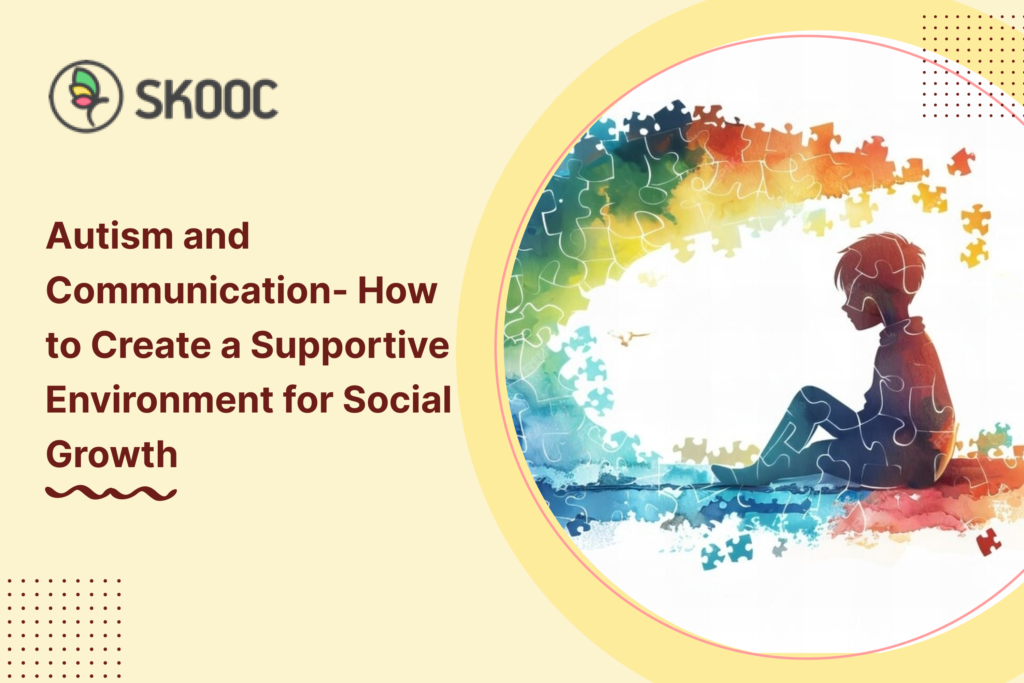High-functioning autism is misunderstood, especially because its symptoms may not appear as obvious as in other cases of autism. Individuals diagnosed with HFA are often incredibly smart and capable; however, it is usually the challenges that such individuals face that remain hidden from the world. These unapparent challenges have a critical effect on their lives, relationships, and even their mental well-being. Skooc stresses sheds light on such experiences and provides counselling and therapy support.
High-Functioning Autism
High-functioning autism is a form of Autism Spectrum Disorder. High-functioning autistic individuals typically have normal intelligence or above and may never require much support in such domains as speech or cognitive function. However, they do exhibit core autism symptoms. These include problems with social communication, restricted interests, and sensory sensitivities.
The term “high-functioning” is very misleading because it makes it seem like these people do not face challenges, which is further from the truth. In reality, their challenges are mostly not so apparent but just as real.
The Hidden Challenges of High-Functioning Autism
Trouble with Social Interactions
Perhaps one of the biggest challenges that come with HFA is the social interaction challenge. People with HFA do not easily pick up on social cues such as body language, tone of voice, or facial expressions. They may fail to understand jokes, sarcasm, or implied meanings in conversations and become lonely or anxious in the company of others.
Despite their intelligence, at times, they may seem aloof or awkward and thus it doesn’t help develop close relations.
Emotional Regulation Management
In many cases, people with high-functioning autism cannot control their emotions. The slightest frustration can become extreme emotional pain, and anxiety or anger feelings are not easily regulated.
This emotional dysregulation can be exhausting and may create misunderstandings in personal or professional relationships. Without good support, it can cause mental health problems such as depression or anxiety.
Problem in Change
Routine and predictability bring comfort to most individuals with HFA. Sudden changes in plans, unexpected events, or disruptions to routine may cause significant stress. The inflexibility here is not about stubbornness but is a deep-seated difficulty in adapting to the unknown.
Masking and Burnout
Many people with HFA learn to “mask” their autism symptoms to fit in. That means they suppress natural behaviours, mimic neurotypical social interactions, and they hide their sensory struggles.
Although masking enables them to fit into the surrounding environment, the cost is high. They get exhausted, anxious, and burnt out in situations that are not understanding or accommodating.
Employment Challenges
While individuals with HFA are very capable and intelligent, they face challenges in getting and holding jobs. They may excel at technical work but fail to understand the social nature of the workplace, such as working in teams or office politics.
Many also suffer from discrimination or lack of understanding by employers who do not know their special strengths or do not offer them the accommodations they require to succeed.
How Counseling Can Help?
We believe that at Skooc understanding and addressing the hidden challenges of HFA is critical in empowering an individual to lead a rich life. Online counselling does provide them with a haven where the child can express his feelings, coping strategies, and basic skills.
Building Social Skills
This therapy will allow the patients with HFA to have meaningful interactions with other people through education about decoding social cues, control over conversations, and the development of meaningful relationships.
Controlling Sensory Overload
Through online therapy, one can learn sensory overload control techniques such as mindfulness, relaxation exercises, or the creation of a sensory-friendly environment.
Increased Emotional Control
Therapists may equip the individual with coping skills and techniques on how to deal with deep emotions, thus reducing anxiety and stress. One technique that works is cognitive-behavioral therapy (CBT).
Coping with Change and Transition
Counselling will build resilience and help a person cope better with life changes and uncertainty.
Mental Health Support
Co-occurring mental health issues can be handled by therapists who can give emotional support as well as some practical strategies that can be applied to enhance the situation.
Conclusion
People with high-functioning autism live in a world with unique challenges, many of which are unnoticed and not well understood. We empower individuals with HFA to use their strengths in living effective lives through acknowledgement and proper support.
At Skooc, we’re dedicated to supporting individuals with HFA through personalised counselling and therapy. Whether you’re navigating your journey or seeking support for a loved one, our team of experienced online therapists is here to help.
Reach out to us today to learn more about our services and take the first step toward understanding and empowerment.
